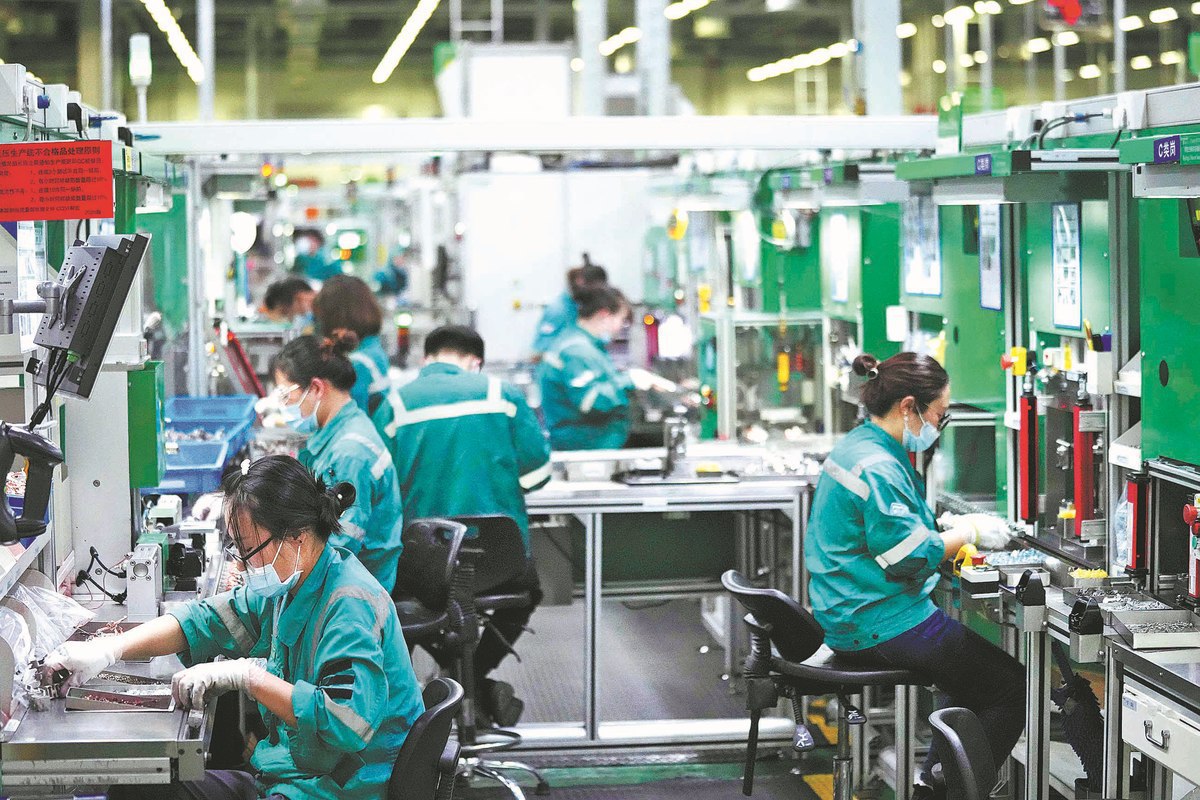Investors have high hopes for progress in Sino-EU investment agreement


Chinese businesses operating in Europe are urging authorities in the European Union to quickly resume the approval process for the China-EU Comprehensive Agreement on Investment, or CAI, and expedite its signing, said a report released by China's top foreign trade and investment promotion agency on Wednesday.
The report — Business Environment of the European Union 2022/2023 — provided by the academy of the Beijing-based China Council for the Promotion of International Trade, said that a favorable business environment is a common expectation of foreign-invested businesses, and will create greater attraction for Chinese companies.
The study found that 28.7 percent of surveyed domestic companies will expand their investments in Europe if the EU relaxes its foreign investment review. About 40.87 percent will increase their investments in Europe if the CAI is signed and implemented.
China and the EU reached an agreement in principle for the CAI in December 2020 after 35 rounds of talks spanning seven years. The European Commission described the CAI as "the most ambitious agreement that China has ever concluded with a third country" and one that "will ensure EU investors achieve better access to a fast-growing 1.4 billion consumer market and competition on a more level playing field in China".
However, the European Parliament blocked the ratification of the CAI due to political reasons in March 2021.
Since 2022, the EU has implemented a number of policies to make it more difficult for foreign companies to invest, acquire and participate in public procurement within the EU. The deterioration of the EU's business environment has affected normal production and operation activities of foreign companies in this market, said Zhao Ping, vice-dean of the CCPIT's academy.
According to the report, 33.04 percent of surveyed Chinese companies believe that the business environment in the EU has worsened, an increase of 5.86 percentage points from the previous year.
"We look forward to the EU's continued improvement of the business environment, allowing foreign companies to play a greater role in promoting the EU's economic growth and employment, as well as creating a broader space for China-EU cooperation," said Zhao.
Bilateral trade between China and the EU grew 2.4 percent on a yearly basis to $847.3 billion in 2022, with China and the EU being each other's second-largest trading partners. Chinese companies' investment flow to the EU reached $7 billion and their investment stock in the EU reached $102.9 billion, the CCPIT said.
The top five EU member states with the best business environment, according to surveyed enterprises, are Germany, France, Italy, the Netherlands and Spain, said the CCPIT report.
As the CAI is considered a balanced, high-level and win-win agreement that benefits China, the EU and the world, China has been keen to deepen mutually beneficial cooperation with the EU, maintain stable and unimpeded global industrial and supply chains, and create a sound environment for European companies to maintain robust growth in its market, said Zhang Yongjun, a researcher at the Beijing-based China Center for International Economic Exchanges.
Echoing that sentiment, Jean-Pascal Tricoire, chairman and CEO of French multinational Schneider Electric SE, said that after operating in China for 36 years, the group is confident and firmly committed to its long-term development in China.
"We will continue to strengthen our 'China hub' strategy and enhance our advantages in innovation and collaboration, and better enable local partners and customers to accelerate their digitalization and decarbonization transformation," he said.
In terms of boosting China's foreign trade, Wang Linjie, spokeswoman for the CCPIT, said the agency to date has received 519 applications, submitted by domestic organizers for overseas exhibitions this year. These trade fairs will be held in 47 countries, including the United States, Germany, France, Japan, Thailand and Brazil.



































